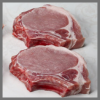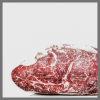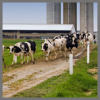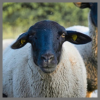-

Jan
02
Interpretive Summary: Dog sniffing biomechanic responses in an odor detection test of odorants with differing physical properties

Dogs are utilized in forensic science for their extensive scent-detection capabilities. They are often considered the “gold standard” in-field detection for targets such as illicit drugs and explosives. Despite their prevalence in the field, relatively little is known about how dogs interact with and transport volatile organic compounds through their olfactory system.
Read more
-

Dec
27
Thank you for making our work a reality
Read more
-

Dec
23
Thank you for making our work a reality!
Read more
-

Dec
19
Washington Roundup – December 2024

Decembers edition of Washington Roundup includes three overviews: Outlook for Continuing Resolution and Farm Bill Extension Unclear, USDA and FDA Release Dietary Guidelines Committee Report, and FDA and APHIS Release Charter on Animal Biologicals Jurisdiction
Read more
-

Dec
19
2025 Dietary Guidelines Advisory Committee Report Open for Public Comment

The Scientific Report of the 2025 Dietary Guidelines Advisory Committee (Scientific Report) was submitted to the Secretaries of the U.S. Department of Health and Human Services (HHS) and the U.S. Department of Agriculture (USDA) and is available online. The departments have opened a 60-day comment period to collect input from the public on the Scientific Report (December 11, 2024 – February 10, 2025).
Read more
-

Dec
19
OSTP’s STEM Five-Year Plan - A Blueprint for Advancing STEM Education and Talent

As we all know, Animal Sciences is a multifaceted STEM field that studies animal biology and management to improve the lives of both animals and humans. It applies principles from the biological, physical, and social sciences to problems in livestock production and management.
Read more
-

Dec
18
The Giving Herd - ASAS Foundation Newsletter - December 2024

The December Edition of The Giving Herd, an ASAS Foundation Newsletter
Read more
-

Dec
12
Interpretive Summary: Soybean isoflavone promotes milk yield and milk fat yield through the ERα-mediated Akt/mTOR pathway in dairy goats

This study aimed to assess the impact of soybean isoflavone (SIF) on milk production and composition in dairy goats. In vivo experiments revealed that SIF supplementation (100 mg/d) significantly raised serum estrogen and prolactin levels, resulting in increased milk yield and fat content compared to the control group.
Read more
-

Dec
12
Interpretive Summary: D-aspartate stimulates growth hormone secretion in wethers

Growth hormone (GH), secreted by the anterior pituitary gland, is crucial in the regulation of ruminant growth and development, milk production, and energy metabolism in ruminants. Controlling GH secretion is, therefore, an essential factor in enhancing productivity.
Read more
-

Dec
12
Interpretive Summary: Cecal metabolomics of 2 divergently selected rabbit lines revealed microbial mechanisms correlated to intramuscular fat deposition

Genetic determination of phenotypes depends not only on the host genome but also on its microbiome, particularly that of the intestinal tract. Host and microbiome form a complex co-metabolism that ultimately affects relevant phenotypes, like the intramuscular fat content. The metabolomic analysis of the gut content can provide a functional characterization, giving a better insight into the microbiome activity implicated.
Read more
-

Dec
12
Interpretive Summary: Proteomic and metabolomic profiling of aged pork loin chops reveals molecular phenotypes linked to pork tenderness

Classifying fresh pork loin based on potential consumer appeal and value enables processors and producers to stand out in a competitive market, catering to domestic and export demands. Accurate classification aligns products with consumer expectations and benefits purveyors, chefs, retailers, and consumers by ensuring consistent quality.
Read more
-

Dec
12
Interpretive Summary: Early postmortem beef muscle proteome and metabolome variations due to supranutritional zinc and ractopamine hydrochloride supplementation

There is significant interest in improving the efficiency of beef production. Beef quality and consumer satisfaction are of equal importance. Feeding zinc (Zn) above nutritional recommendations and feeding ractopamine hydrochloride (RH) can be utilized to optimize cattle growth.
Read more
-

Dec
12
Interpretive Summary: Welfare and performance benefits of shade provision during summer for feedlot cattle in a temperate climatic zone

The performance and welfare benefits of providing shade in cattle feedlots have predominantly been investigated in higher-risk heat-stress zones. However, it is unclear whether the reported benefits of shade are relevant in cooler temperate zones.
Read more
-

Dec
05
Interpretive Summary: The essential oil blend Agolin Ruminant L reduces methane production in vitro and in vivo when included in the drinking water of cattle

Most research conducted to reduce methane (CH4) emissions from cattle has focused on intensive feeding systems, such as dairy and feedlots, where feeding management is tightly controlled. The delivery of CH4 mitigants to ruminants grazing in extensive pasture-based systems requires attention. Two experiments were conducted to investigate the delivery of an essential oil blend called Agolin Ruminant L (Agolin) to beef cattle via drinking water to reduce CH4 emissions.
Read more
-

Dec
05
Interpretive Summary: Adding gastrointestinal parasite resistance to the breeding objective in hair sheep: initial steps

Gastrointestinal parasite resistance is a heritable trait important to breeders of hair sheep. However, the U.S. Maternal Hair Index, provided by the National Sheep Improvement Program, omits parasite resistance. Selection indexes were designed in this study to continue improving total weight of lamb weaned per ewe lambing (TW), the current goal, and reduce postweaning fecal egg count (PFEC), an indicator of parasite resistance.
Read more
-

Dec
05
Interpretive Summary: Characterizing local pig breeds as reservoirs for the domestic pig genetic variability worldwide via contributions to gene diversity and allelic richness

The assessment of contributions to diversity is informative on how allelic frequencies of a metapopulation are partitioned among subpopulations and is further useful to identify unique subpopulations gathering rare alleles. Up to 2,260 pig genotypes were used to assess contributions to gene diversity and allelic richness in a total of 98 local domestic pig subpopulations and 6 Cosmopolitan pig populations worldwide.
Read more
-

Dec
05
Interpretive Summary: The effect of repeated lipopolysaccharide endotoxin challenge on immune response of breeding ewes and subsequent lamb performance

During disease states, bacterial endotoxins act locally and systemically, negatively impacting reproductive capacity and economic productivity. The present study investigated the impacts of repeated low-dose endotoxin exposure during follicular development on the immune response and subsequent reproductive and lamb growth variables.
Read more
-

Dec
05
Interpretive Summary: The impact of exogenous vasoactive intestinal polypeptide on inflammatory responses and mRNA expression of tight junction genes in lambs fed a high-grain diet

This research investigates the potential of administering vasoactive intestinal polypeptide (VIP) to ruminants fed grain-based diets, to mitigate gut inflammation and thus enhance growth performance. Lambs were adapted to a corn-based diet with no added forage and randomly assigned to control (no VIP) or VIP treatment groups.
Read more
-

Dec
05
Interpretive Summary: Influence of sire plane of nutrition and targeted body weight gain on ewe lamb growth, glucose metabolism, and ovarian reserve

Recent literature suggests that exposure of the sire to excess or inadequate nutrition before breeding could contribute to altered growth, metabolism, and reproduction of their offspring. Exposure of the offspring to postnatal environmental stressors may further exacerbate the effects of sire nutrition on growth and metabolism.
Read more
-

Nov
21
Washington Roundup - November 2024
.png?sfvrsn=cb2854d1_1)
Novembers edition of Washington Roundup includes three overviews: Congress Returns for Lame Duck Session, Registration Open for USDA’s 101st Agricultural Outlook Forum, and NIFA Publishes Climate Science Report.
Read more
 JanInterpretive Summary: Dog sniffing biomechanic responses in an odor detection test of odorants with differing physical properties
JanInterpretive Summary: Dog sniffing biomechanic responses in an odor detection test of odorants with differing physical properties Dogs are utilized in forensic science for their extensive scent-detection capabilities. They are often considered the “gold standard” in-field detection for targets such as illicit drugs and explosives. Despite their prevalence in the field, relatively little is known about how dogs interact with and transport volatile organic compounds through their olfactory system.
Dogs are utilized in forensic science for their extensive scent-detection capabilities. They are often considered the “gold standard” in-field detection for targets such as illicit drugs and explosives. Despite their prevalence in the field, relatively little is known about how dogs interact with and transport volatile organic compounds through their olfactory system. DecThank you for making our work a reality
DecThank you for making our work a reality DecThank you for making our work a reality!
DecThank you for making our work a reality! DecWashington Roundup – December 2024
DecWashington Roundup – December 2024 Decembers edition of Washington Roundup includes three overviews: Outlook for Continuing Resolution and Farm Bill Extension Unclear, USDA and FDA Release Dietary Guidelines Committee Report, and FDA and APHIS Release Charter on Animal Biologicals Jurisdiction
Decembers edition of Washington Roundup includes three overviews: Outlook for Continuing Resolution and Farm Bill Extension Unclear, USDA and FDA Release Dietary Guidelines Committee Report, and FDA and APHIS Release Charter on Animal Biologicals Jurisdiction Dec2025 Dietary Guidelines Advisory Committee Report Open for Public Comment
Dec2025 Dietary Guidelines Advisory Committee Report Open for Public Comment The Scientific Report of the 2025 Dietary Guidelines Advisory Committee (Scientific Report) was submitted to the Secretaries of the U.S. Department of Health and Human Services (HHS) and the U.S. Department of Agriculture (USDA) and is available online. The departments have opened a 60-day comment period to collect input from the public on the Scientific Report (December 11, 2024 – February 10, 2025).
The Scientific Report of the 2025 Dietary Guidelines Advisory Committee (Scientific Report) was submitted to the Secretaries of the U.S. Department of Health and Human Services (HHS) and the U.S. Department of Agriculture (USDA) and is available online. The departments have opened a 60-day comment period to collect input from the public on the Scientific Report (December 11, 2024 – February 10, 2025). DecOSTP’s STEM Five-Year Plan - A Blueprint for Advancing STEM Education and Talent
DecOSTP’s STEM Five-Year Plan - A Blueprint for Advancing STEM Education and Talent As we all know, Animal Sciences is a multifaceted STEM field that studies animal biology and management to improve the lives of both animals and humans. It applies principles from the biological, physical, and social sciences to problems in livestock production and management.
As we all know, Animal Sciences is a multifaceted STEM field that studies animal biology and management to improve the lives of both animals and humans. It applies principles from the biological, physical, and social sciences to problems in livestock production and management. DecThe Giving Herd - ASAS Foundation Newsletter - December 2024
DecThe Giving Herd - ASAS Foundation Newsletter - December 2024 The December Edition of The Giving Herd, an ASAS Foundation Newsletter
The December Edition of The Giving Herd, an ASAS Foundation Newsletter DecInterpretive Summary: Soybean isoflavone promotes milk yield and milk fat yield through the ERα-mediated Akt/mTOR pathway in dairy goats
DecInterpretive Summary: Soybean isoflavone promotes milk yield and milk fat yield through the ERα-mediated Akt/mTOR pathway in dairy goats This study aimed to assess the impact of soybean isoflavone (SIF) on milk production and composition in dairy goats. In vivo experiments revealed that SIF supplementation (100 mg/d) significantly raised serum estrogen and prolactin levels, resulting in increased milk yield and fat content compared to the control group.
This study aimed to assess the impact of soybean isoflavone (SIF) on milk production and composition in dairy goats. In vivo experiments revealed that SIF supplementation (100 mg/d) significantly raised serum estrogen and prolactin levels, resulting in increased milk yield and fat content compared to the control group. DecInterpretive Summary: D-aspartate stimulates growth hormone secretion in wethers
DecInterpretive Summary: D-aspartate stimulates growth hormone secretion in wethers Growth hormone (GH), secreted by the anterior pituitary gland, is crucial in the regulation of ruminant growth and development, milk production, and energy metabolism in ruminants. Controlling GH secretion is, therefore, an essential factor in enhancing productivity.
Growth hormone (GH), secreted by the anterior pituitary gland, is crucial in the regulation of ruminant growth and development, milk production, and energy metabolism in ruminants. Controlling GH secretion is, therefore, an essential factor in enhancing productivity. DecInterpretive Summary: Cecal metabolomics of 2 divergently selected rabbit lines revealed microbial mechanisms correlated to intramuscular fat deposition
DecInterpretive Summary: Cecal metabolomics of 2 divergently selected rabbit lines revealed microbial mechanisms correlated to intramuscular fat deposition Genetic determination of phenotypes depends not only on the host genome but also on its microbiome, particularly that of the intestinal tract. Host and microbiome form a complex co-metabolism that ultimately affects relevant phenotypes, like the intramuscular fat content. The metabolomic analysis of the gut content can provide a functional characterization, giving a better insight into the microbiome activity implicated.
Genetic determination of phenotypes depends not only on the host genome but also on its microbiome, particularly that of the intestinal tract. Host and microbiome form a complex co-metabolism that ultimately affects relevant phenotypes, like the intramuscular fat content. The metabolomic analysis of the gut content can provide a functional characterization, giving a better insight into the microbiome activity implicated. DecInterpretive Summary: Proteomic and metabolomic profiling of aged pork loin chops reveals molecular phenotypes linked to pork tenderness
DecInterpretive Summary: Proteomic and metabolomic profiling of aged pork loin chops reveals molecular phenotypes linked to pork tenderness Classifying fresh pork loin based on potential consumer appeal and value enables processors and producers to stand out in a competitive market, catering to domestic and export demands. Accurate classification aligns products with consumer expectations and benefits purveyors, chefs, retailers, and consumers by ensuring consistent quality.
Classifying fresh pork loin based on potential consumer appeal and value enables processors and producers to stand out in a competitive market, catering to domestic and export demands. Accurate classification aligns products with consumer expectations and benefits purveyors, chefs, retailers, and consumers by ensuring consistent quality. DecInterpretive Summary: Early postmortem beef muscle proteome and metabolome variations due to supranutritional zinc and ractopamine hydrochloride supplementation
DecInterpretive Summary: Early postmortem beef muscle proteome and metabolome variations due to supranutritional zinc and ractopamine hydrochloride supplementation There is significant interest in improving the efficiency of beef production. Beef quality and consumer satisfaction are of equal importance. Feeding zinc (Zn) above nutritional recommendations and feeding ractopamine hydrochloride (RH) can be utilized to optimize cattle growth.
There is significant interest in improving the efficiency of beef production. Beef quality and consumer satisfaction are of equal importance. Feeding zinc (Zn) above nutritional recommendations and feeding ractopamine hydrochloride (RH) can be utilized to optimize cattle growth. DecInterpretive Summary: Welfare and performance benefits of shade provision during summer for feedlot cattle in a temperate climatic zone
DecInterpretive Summary: Welfare and performance benefits of shade provision during summer for feedlot cattle in a temperate climatic zone The performance and welfare benefits of providing shade in cattle feedlots have predominantly been investigated in higher-risk heat-stress zones. However, it is unclear whether the reported benefits of shade are relevant in cooler temperate zones.
The performance and welfare benefits of providing shade in cattle feedlots have predominantly been investigated in higher-risk heat-stress zones. However, it is unclear whether the reported benefits of shade are relevant in cooler temperate zones. DecInterpretive Summary: The essential oil blend Agolin Ruminant L reduces methane production in vitro and in vivo when included in the drinking water of cattle
DecInterpretive Summary: The essential oil blend Agolin Ruminant L reduces methane production in vitro and in vivo when included in the drinking water of cattle Most research conducted to reduce methane (CH4) emissions from cattle has focused on intensive feeding systems, such as dairy and feedlots, where feeding management is tightly controlled. The delivery of CH4 mitigants to ruminants grazing in extensive pasture-based systems requires attention. Two experiments were conducted to investigate the delivery of an essential oil blend called Agolin Ruminant L (Agolin) to beef cattle via drinking water to reduce CH4 emissions.
Most research conducted to reduce methane (CH4) emissions from cattle has focused on intensive feeding systems, such as dairy and feedlots, where feeding management is tightly controlled. The delivery of CH4 mitigants to ruminants grazing in extensive pasture-based systems requires attention. Two experiments were conducted to investigate the delivery of an essential oil blend called Agolin Ruminant L (Agolin) to beef cattle via drinking water to reduce CH4 emissions. DecInterpretive Summary: Adding gastrointestinal parasite resistance to the breeding objective in hair sheep: initial steps
DecInterpretive Summary: Adding gastrointestinal parasite resistance to the breeding objective in hair sheep: initial steps Gastrointestinal parasite resistance is a heritable trait important to breeders of hair sheep. However, the U.S. Maternal Hair Index, provided by the National Sheep Improvement Program, omits parasite resistance. Selection indexes were designed in this study to continue improving total weight of lamb weaned per ewe lambing (TW), the current goal, and reduce postweaning fecal egg count (PFEC), an indicator of parasite resistance.
Gastrointestinal parasite resistance is a heritable trait important to breeders of hair sheep. However, the U.S. Maternal Hair Index, provided by the National Sheep Improvement Program, omits parasite resistance. Selection indexes were designed in this study to continue improving total weight of lamb weaned per ewe lambing (TW), the current goal, and reduce postweaning fecal egg count (PFEC), an indicator of parasite resistance. DecInterpretive Summary: Characterizing local pig breeds as reservoirs for the domestic pig genetic variability worldwide via contributions to gene diversity and allelic richness
DecInterpretive Summary: Characterizing local pig breeds as reservoirs for the domestic pig genetic variability worldwide via contributions to gene diversity and allelic richness The assessment of contributions to diversity is informative on how allelic frequencies of a metapopulation are partitioned among subpopulations and is further useful to identify unique subpopulations gathering rare alleles. Up to 2,260 pig genotypes were used to assess contributions to gene diversity and allelic richness in a total of 98 local domestic pig subpopulations and 6 Cosmopolitan pig populations worldwide.
The assessment of contributions to diversity is informative on how allelic frequencies of a metapopulation are partitioned among subpopulations and is further useful to identify unique subpopulations gathering rare alleles. Up to 2,260 pig genotypes were used to assess contributions to gene diversity and allelic richness in a total of 98 local domestic pig subpopulations and 6 Cosmopolitan pig populations worldwide. DecInterpretive Summary: The effect of repeated lipopolysaccharide endotoxin challenge on immune response of breeding ewes and subsequent lamb performance
DecInterpretive Summary: The effect of repeated lipopolysaccharide endotoxin challenge on immune response of breeding ewes and subsequent lamb performance During disease states, bacterial endotoxins act locally and systemically, negatively impacting reproductive capacity and economic productivity. The present study investigated the impacts of repeated low-dose endotoxin exposure during follicular development on the immune response and subsequent reproductive and lamb growth variables.
During disease states, bacterial endotoxins act locally and systemically, negatively impacting reproductive capacity and economic productivity. The present study investigated the impacts of repeated low-dose endotoxin exposure during follicular development on the immune response and subsequent reproductive and lamb growth variables. DecInterpretive Summary: The impact of exogenous vasoactive intestinal polypeptide on inflammatory responses and mRNA expression of tight junction genes in lambs fed a high-grain diet
DecInterpretive Summary: The impact of exogenous vasoactive intestinal polypeptide on inflammatory responses and mRNA expression of tight junction genes in lambs fed a high-grain diet This research investigates the potential of administering vasoactive intestinal polypeptide (VIP) to ruminants fed grain-based diets, to mitigate gut inflammation and thus enhance growth performance. Lambs were adapted to a corn-based diet with no added forage and randomly assigned to control (no VIP) or VIP treatment groups.
This research investigates the potential of administering vasoactive intestinal polypeptide (VIP) to ruminants fed grain-based diets, to mitigate gut inflammation and thus enhance growth performance. Lambs were adapted to a corn-based diet with no added forage and randomly assigned to control (no VIP) or VIP treatment groups. DecInterpretive Summary: Influence of sire plane of nutrition and targeted body weight gain on ewe lamb growth, glucose metabolism, and ovarian reserve
DecInterpretive Summary: Influence of sire plane of nutrition and targeted body weight gain on ewe lamb growth, glucose metabolism, and ovarian reserve Recent literature suggests that exposure of the sire to excess or inadequate nutrition before breeding could contribute to altered growth, metabolism, and reproduction of their offspring. Exposure of the offspring to postnatal environmental stressors may further exacerbate the effects of sire nutrition on growth and metabolism.
Recent literature suggests that exposure of the sire to excess or inadequate nutrition before breeding could contribute to altered growth, metabolism, and reproduction of their offspring. Exposure of the offspring to postnatal environmental stressors may further exacerbate the effects of sire nutrition on growth and metabolism. NovWashington Roundup - November 2024
NovWashington Roundup - November 2024.png?sfvrsn=cb2854d1_1) Novembers edition of Washington Roundup includes three overviews: Congress Returns for Lame Duck Session, Registration Open for USDA’s 101st Agricultural Outlook Forum, and NIFA Publishes Climate Science Report.
Novembers edition of Washington Roundup includes three overviews: Congress Returns for Lame Duck Session, Registration Open for USDA’s 101st Agricultural Outlook Forum, and NIFA Publishes Climate Science Report.



